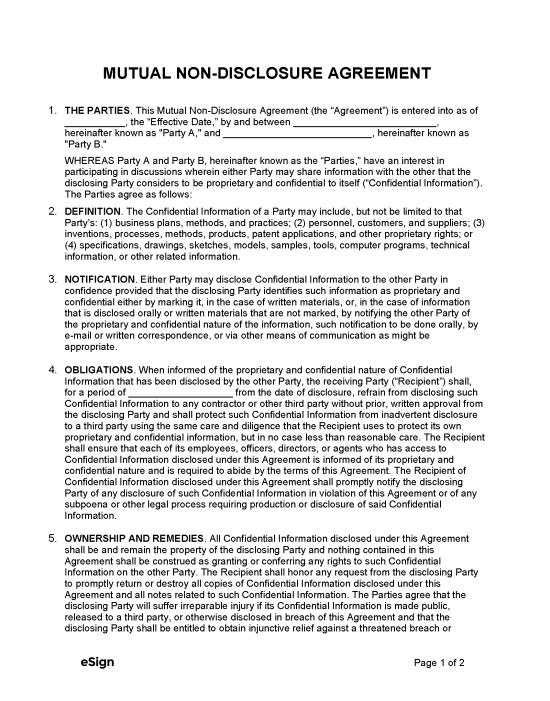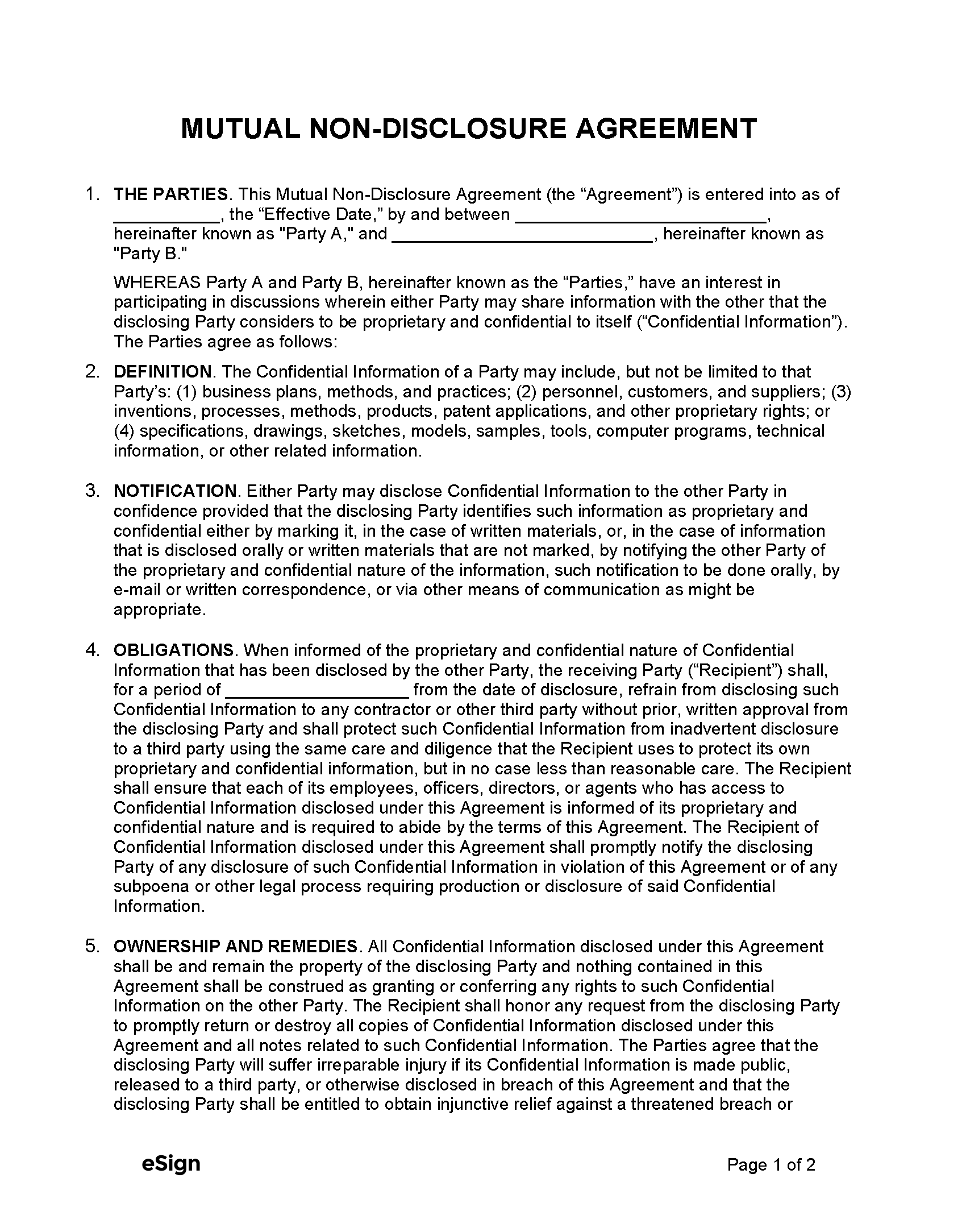
A mutual non-disclosure agreement is a contract in which the parties agree to protect confidential information shared between them. The form establishes what information must not be disclosed, the duration of the parties’ confidentiality duties, and the repercussions for breaching the agreement.
A mutual non-disclosure agreement is a contract in which the parties agree to protect confidential information shared between them. The form establishes what information must not be disclosed, the duration of the parties’ confidentiality duties, and the repercussions for breaching the agreement.
PDF Download
A mutual non-disclosure agreement is a contract in which the parties agree to protect confidential information shared between them. The form establishes what information must not be disclosed, the duration of the parties’ confidentiality duties, and the repercussions for breaching the agreement.
5 | 1 Rating Downloads: 95
A mutual NDA requires all the signing parties to keep each other’s information private, unlike a unilateral NDA, where only one party can’t share the other’s sensitive information. A mutual agreement is useful when it is necessary for both parties to reveal proprietary information in a business relationship, such as in mergers and joint ventures.
In general, a completed NDA will contain the following sections:
1. THE PARTIES. This Mutual Non-Disclosure Agreement (the “Agreement”) is entered into as of [MM/DD/YYYY] , the “Effective Date,” by and between [PARTY NAME] (“Party A”) and [PARTY NAME] (“Party B”), known jointly as the “Parties.”
2. DEFINITION. The Confidential Information of a Party may include, but not be limited to that Party’s: (1) business plans, methods, and practices; (2) personnel, customers, and suppliers; (3) inventions, processes, methods, products, patent applications, and other proprietary rights; or (4) specifications, drawings, sketches, models, samples, tools, computer programs, technical information, or other related information.
3. NOTIFICATION. Either Party may disclose Confidential Information to the other Party in confidence provided that the disclosing Party identifies such information as proprietary and confidential either by marking it or by informing the other Party.
4. OBLIGATIONS. The receiving Party of Confidential Information (“Recipient”) shall, for a period of [TIME PERIOD] from the date of disclosure, refrain from disclosing such Confidential Information to any third party without the disclosing Party’s written approval and shall protect such Confidential Information from inadvertent disclosure.
5. OWNERSHIP. All Confidential Information disclosed under this Agreement shall be and remain the property of the disclosing Party and nothing contained in this Agreement shall be construed as granting or conferring any rights to such Confidential Information on the other Party.
6. EXCEPTIONS. Notwithstanding the above, the Parties agree that information shall not be deemed Confidential Information if such information:
a) Is already known to the Recipient, having been disclosed by a third party without an obligation of confidentiality to the disclosing Party; or
b) Is or becomes publicly known through no wrongful act of the Recipient; or
c) Is independently developed by the Recipient; or
d) Is approved for release by the disclosing Party; or
e) Is disclosed as required by order of a court or governmental agency or operation of law.
7. TERM. This Agreement is effective for a period of [TIME PERIOD] from the Effective Date unless terminated by a Party giving notice to the other. The duty to protect Confidential Information shall survive termination of this Agreement.
Party A’s Signature __________________________ Date _________________
Print Name __________________________
Party B’s Signature __________________________ Date _________________
Print Name __________________________